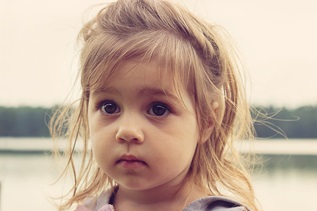- Home
- Child Custody
- Divorcing With Children
Divorcing with Children
Divorcing with children still at home means more than just splitting assets and debts.

You now have to consider custody, visitation and building a co-parenting relationship with your soon-to-be ex. Unfortunately, one of the biggest obstacles to successfully co-parenting is keeping your emotions from interfering with what’s best for the children. If this is something you're struggling with, keep reading for a fresh perspective.
Yours, Mine, Ours: Always Ours
Custody litigation can be emotionally exhausting and financially devastating. I think that some of this happens because people do not fully understand
1) How the court system operates or
2) What the court system typically does or thinks about you and your kids.
The title of my post is important. As I have discussed previously, property can get divided, you can each take half of the bank account, you can sell off the house, etc. Things are divisible. Things can break down into his and hers (or hers and hers, etc.).
That cannot happen with a child. A child is forever part of both of you, and you are forever going to be co-parents. This is the general premise on which the court operates.
There is not a legal presumption that shared custody is always is in the best interest of the children. But... there is a very strong belief that your child has a right to have meaningful, ongoing contact and a healthy relationship with both of their parents.
Courts favor shared custody
This is something that some people seem to have difficulty understanding. Even if one parent was working 80 hours a week while the other was home taking care of the children since your child was born, that division of labor during your relationship is not going to dictate your future.
The things that people did, how they managed their lives and who made dinner, or took care of bath and bed time is no longer relevant. When you stop living in the same house you start making new rules.
There will be new routines and new responsibilities going forward and the Court has more interest in how those will work than what you did before. The way two people manage one household is usually very different from how they each manage their own post-separation homes.
In the vast majority of cases, custody will be shared in some way. There is not a particularly specific definition of shared custody; it may mean that it is absolutely equal or it may not. It is a very rare circumstance when the court is not leaning towards a shared custody situation from the beginning.
Shared custody may not fit in situations where there is an issue of substance abuse, physical abuse, verbal abuse, incarceration or complete abandonment. Barring these things, as a general rule, the court is more concerned with your child’s right to see both parents than they are with how you feel this idea.
Seeing the other parent is your child’s right
They are part you and part the other parent. They are entitled to get to see both of you, regardless how either of you feel about it. Your child has a right to know, love and enjoy time with both of their parents.
When you have a child (if you are doing it right) you will always have a co-parenting relationship. To many people this is a shock and a very upsetting one. For some, every single custody exchange rips the band-aid off of deep emotional wounds.
Your feelings are important, but your child’s are paramount
You may well feel you have a right to be angry, or to dislike the other parent, but your child comes first here and you need to get past your own feelings. I have said it before but it bears repeating. When you divorce, you can divvy up your assets, move to the other side of the country, and never speak to one another again….. unless you have a child.
Unfortunately, this is part of life and it is not just part of your life, it is part of your child’s. If they perceive you as being upset by or angry at their parent, it will hurt them. As difficult as it is for you individually, your responsibility as a parent is to try and make this as easy on your children as possible.
As I have said before, if you are still very angry, talk to someone. A trained professional is always best and it never hurts to have the support of friends and family. However, that family support should not turn into a rallying cry to wage an out and out war on the other parent.
Your child knows that they are part of you. Your kid also knows that they are part of their other parent too. When you attack the other parent, you attack that part of your child too. They might not be able to articulate that to you, but it does not mean they do not feel it and are not hurt by it.
Custody litigation is hard to do alone. Talk to a lawyer to know your rights, and talk to a counselor to manage your emotions. And more importantly, show your child by example how to be the kind of parent you want them to be some day.
Attorney Rebecca A. Myers has been helping divorcing couples in Western Pennsylvania navigate the difficult issues of divorce, support and custody for more than a decade using a holistic approach to the legal process.
Divorcing with children will mean lots of adjustments along the way and these articles can help you cope with the changes:
Should You Take Your Custody Fight to Court?
